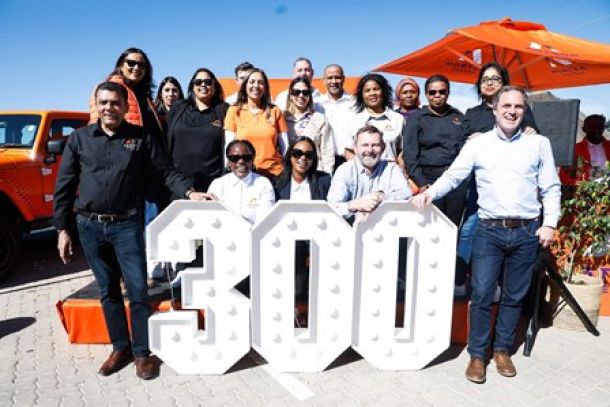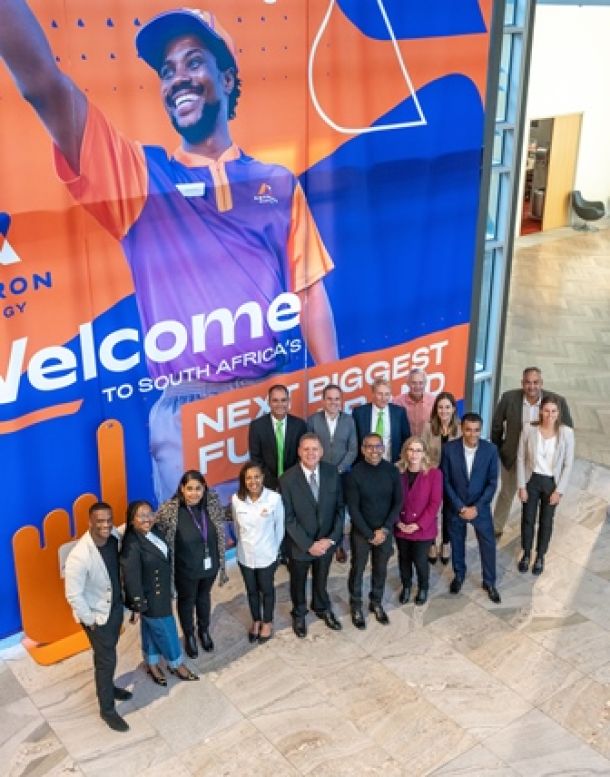Halaal park: coming to the table
Cape Town sets its sights on the production of halaal food in the hopes of establishing a new export industry
The global market for halaal food was worth US$2.3 trillion in 2015, and rapid growth could push it to $3.7 trillion in 2020, according to the Dubai government’s 2016 Global Islamic Economy Report.
The Western Cape aims to tap into this huge market with the development of a halaal food park. First mooted in 2015, it is a key element of the provincial government’s agriculture and agri-processing development initiative, Project Khulisa.
"The Malaysian government initiated discussions on the project," says Alan Winde, Western Cape minister of economic opportunities. "They have a lot of expertise in the agri-park space."
The task of assessing the feasibility of the Western Cape food park and its conceptualisation was entrusted to the Western Cape Fine Food Initiative (WCFFI), a nonprofit organisation promoting the interests of food processors. In its work on the food park, the WCFFI has received assistance from the Malaysian Industry-Government Group for High Technology under a co-operation agreement.
Assistance has also come from big business. The likes of Unilever and Nestlé have sent experts to SA to help with the food park’s development, says Winde.
WCFFI CEO Nazeem Sterras says: "We are now in the final phase of our study and should be finished by the end of May."
Three potential sites for the food park, which will be the first of its kind in Africa, have already been identified. "One is near Cape Town airport, another in Stellenbosch and a third in Paarl," says Winde.
The costs of developing the food park are not yet finalised. "But it will be R1bn at the very least and probably closer to R2bn-R2.5bn," says Sterras.
Figures from prefeasibility studies published in 2015 indicated that the project could create 5,000 new jobs and generate up to R5bn/year for the Western Cape economy.
Of great importance, says Winde, is that the project has the support of the three big halaal product certification bodies in SA: the Muslim Judicial Council, the Islamic Council of SA and the SA National Halaal Authority.
The structure of the food park will cater for a range of producers. "There will be medium-size businesses, small incubator-type businesses and probably quite a few big SA and foreign corporates that are expressing a lot of interest," says Sterras.
Despite its name, the food park will not be confined to producers of halaal food and beverages.
"We also expect to attract producers of halaal personal care, cosmetics and pharmaceutical products," says Sterras. "There is also a lot of scope for producers of product ingredients. An example is halaal gelatine, which is hard to come by worldwide."
Winde sees opening up export markets for the food park as his key role. "We are sending trade delegations to target markets," he says. "We are gaining nice traction."
One key market for halaal product exports is Africa, home to 635m Muslims, with high concentrations in North and East Africa.
"Africa’s halaal product market is worth $118bn annually, yet only 11% of products are certified," says Winde.
Sterras homes in on a reason for the wider appeal of halaal products: "Halaal is not just about religious compliance. Halaal certification assures buyers that products are healthy, nutritious, clean, safe, are humane to animals and cause no harm to the environment."
Winde also believes the food park’s market will extend beyond Muslims. "I want to see the development of a Cape halaal brand that will have wide appeal because of the high quality of products being produced."
Sterras sees the food park as just the start of greater things for SA’s halaal products industry. "There is scope for multiple hubs in SA," he says.
If the proposed Western Cape food park is anything as successful as Project Khulisahas been so far, it has a great future.
"In 2015 and 2016 we created a total of 127,000 new jobs in agriculture and the agri-processing sectors," says Winde. "Despite the drought, it is still going well. Farmers are planting fruit trees in large numbers and need labour, including skilled implement operators."
News Category
- International retailers
- On the move
- Awards and achievements
- Legislation
- Wine and liquor
- Africa
- Going green
- Supplier news
- Research tools
- Retailer trading results
- Supply chain
- Innovation and technology
- Economic factors
- Crime and security
- Store Openings
- Marketing and Promotions
- Social Responsibility
- Brand Press Office
Related Articles

Pretoria’s Zambezi Junction Shopping Centre Get...

New kid on the block Astron Energy celebrates 3...

Astron Energy signs new 10-year agreement with ...

Amazon’s ‘local is lekker’ strategy taps into g...


